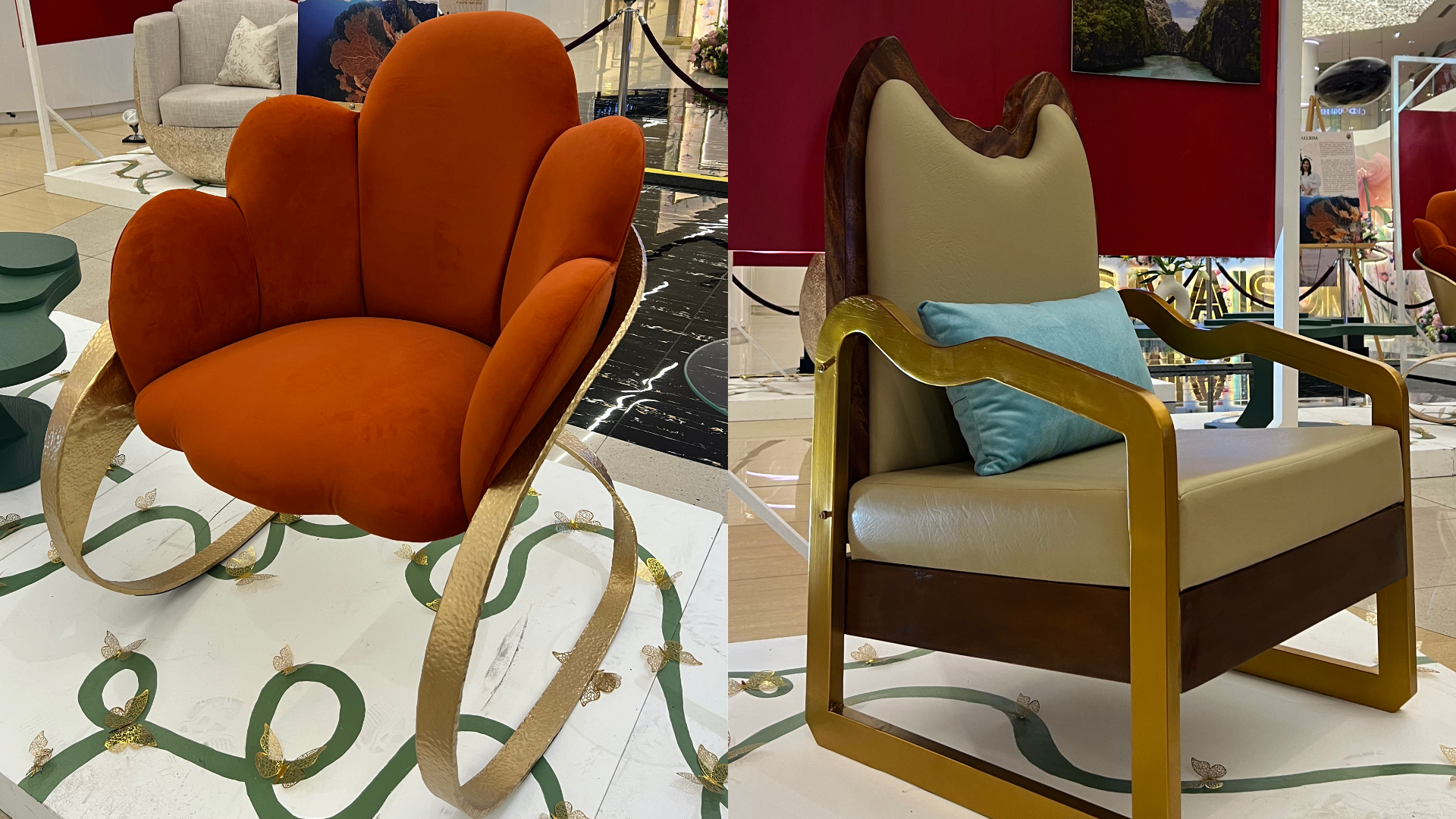Aspiring young Filipino artists encapsulated the Philippine natural wonders and United Nations Educational, Scientific and Cultural Organization (UNESCO) World Heritage sites in a week-long exhibition of innovative furnishing displays.
Dubbed Mariraya, the showcase featured a core collection of functional chairs and coffee tables inspired by the scenic beauty of popular and traditional attractions of the Philippines.
The initiative was created by the Interior Design students from the De La Salle-College of Saint Benilde (DLS-CSB) School of Environment and Design (SED) to promote the rich culture and heritage in the country.
To immerse in real-life experiential learning, the youthful creatives presented their creations to a roster of industry experts, who screened their entries for the Professional’s Choice Awards.
The panel was comprised of Benilde Interior Design Program Chairperson IDr. Katherine Correa, IDr. Hannah Kirsten Galang-Dumlao, IDr. Mark Joseph Madolaria, IDr. Maureen Joyce Pineda, and IDr. Romulo Suyom Jr.
They evaluated the prototypes based on compliance with the application of anthropometrics and ergonomics standards, concept translation, material selection, and craftsmanship.
The Corallium Chair by Guia Amora and Michaela Saliba was hailed as the Grand Prize winner. It used velvet fabric and stainless steel to mimic breathtaking corals and soft rocking of undulating waves.

It is inspired by the organic and intricate structures of the Tubbataha Reef in the Sulu Sea, a world-renowned scuba diving area and UNESCO World Heritage site.
Alyannah Chua and Danielle McGregor’s Dakay Chair and Coffee Table finished second place. The seating composition was crafted from a mahogany wood base with ovate-shaped Capiz shells to serve as an elegant stand-in for stones. The coffee table, on the other hand, was formed with smoked-finish Capiz shells, fiber, and tempered glasses that reflect the robustness of the historical edifice.

Capturing the tranquil Batanes landscape, it portrayed the House of Dakay, the oldest stone house in Batanes named as a UNESCO heritage building.
Palay Mesa by Megan Chua and Xan Pansacola placed third. It was built with mahogany hardwood to balance traditional aesthetics with modern functionality.

Derived from the cultural treasure and UNESCO World Heritage site Banaue Rice Terraces, it encompassed the earthy tones, steps, and patterns of the terrain.
The People’s Choice Awards, which attracted the most votes from the guests, were likewise bestowed to Chua and McGregor’s Dakay Chair and Coffee Table and Chua and Pansacola’s Palay Mesa for the first and second distinctions, respectively.
Jing Gan and Maxine Vidallon’s Daloy Chair followed in the third spot. It was composed of layers of curvaceous gmelina wood carvings that flowed around the façade of the armrest and backrest. It captured the magnificent caverns and UNESCO World Heritage Site Subterranean River National Park, commonly known as Underground River Cave in Puerto Princesa City, Palawan.

Mariraya likewise featured Simon Bigornia and Margarette Marcadejas’ Baybayon Coffee Table. It has a round and double-layered table top in clear resin and star-formed mahogany legs. It depicted the beautiful stretches of sands of Bonbon Beach in Romblon Island.

Hashley Cervas and Camille Crobalde’s Bighan Chair consisted of mahogany wood and stainless steel that trace the silhouette of the stunning rock formations and tropical ambiance. It embodied the scenic island of Big Lagoon in El Nido, Palawan.

The showcase likewise featured a piece that paid homage to a local Filipino artisan. Kiana Guzman, Beatrice Lo, and Clarisse Oconer’s Pumaimanlang Chair utilized synthetic rattan that takes on a unique shoe-inspired design and positioned vertically with a resemblance to a feather. It was influenced by the sculpture Pangarap ni Karancho by painter and sculptor Jerson Muñoz.









